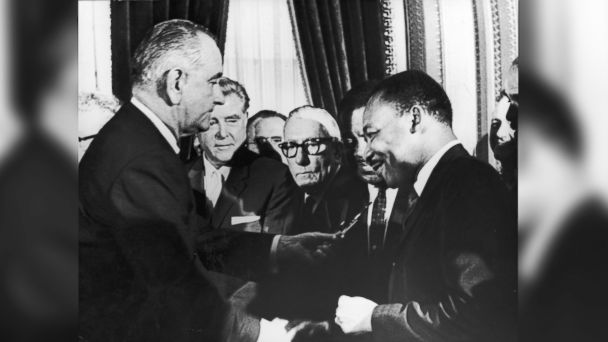50 Years After Freedom Summer, Civil Rights Vets Fear Rollback

(Washington Bureau/Getty Images)
ABC News' Jennifer Hansler reports:
"There's been some progress," Wally Roberts said. "People are not murdered for registering to vote these days."
As a Freedom Summer volunteer, Roberts was one of about 1,000 volunteers who descended upon Mississippi in 1964 to register voters and bring the nation's attention to the atrocities in the South. Once there, he experienced the threats and obstacles facing African-Americans who attempted to register to vote. They risked physical and verbal abuse, loss of employment and housing, even death.
WATCH: 'Freedom Summer' Filmmaker: Struggle for Voting Rights 'Isn't Over'
Fifty years later, although the threat of violence has subsided, Roberts and other civil rights movement veterans argue that the hard-won right of all citizens to vote is in danger.
"Progress is only because of the enforcement [of the 1965 Voting Rights Act]," said Gren Whitman, a Biloxi voter registration volunteer during Freedom Summer.
One year ago, the Supreme Court declared unconstitutional a major portion of that act in its 5-4 ruling on Shelby County v. Holder. Historically discriminatory Southern states no longer have to seek federal approval to change their elections laws. The decision came to the disappointment of many civil rights veterans.
READ: Supreme Court Strikes Down Key Part of Voting Rights Act
"You could not have told me in 1964 that after the struggle…we would be fighting the same fight 50 years later," said Betty Garman Robinson, a former employee of the Student Non-Violent Coordinating Committee.
These activists are frustrated by Congress's slowness to replace the unconstitutional provisions of the Act with an updated amendment. Although versions of the Amendment Bill have been proposed in both the House and the Senate, they have seen limited movement and little-to-no bipartisan support. Some Republicans are concerned that Southern states would be unduly targeted, although any state could be eligible for pre-clearance under the proposed legislation. Other Republican senators argue that there is not sufficient voter discrimination to warrant such an amendment.
"If it's no longer necessary, why bother fighting it?" asked Larry Rubin, a SNCC worker who spent five years in Mississippi. "We have lots of 'no longer necessary laws,' but no one makes a big deal out of them."
READ: Voting Rights Fix Tests Civil Rights Movement's Strength
The civil rights veterans argue that there have been numerous examples of voter intimidation among America's most vulnerable populations: the young, the elderly, marginalized minorities, the poor. Therefore, the argument that such protections are no longer necessary seems to be, in the opinion of Genevieve Dishotsky, a "thinly disguised attack on expanding voter rights to all qualified voters."
Indeed, many of the civil rights activists believe that there are malicious intentions behind the stalling of the bills.
"There's plenty of ways to discriminate without blatantly saying so," argues Jo Freeman, a former Southern Christian Leadership Conference (SCLC) worker.
READ: On Voting Rights Act, NAACP President Hopes Boehner Will 'Look Into the Eyes of John Lewis'
They see this sort of discrimination realized in the influx of voter ID laws, restrictions on polling place hours, and other measures passed in 22 states in the wake of Shelby v. Holder. Proponents of the ID laws claim that they have helped to reduce the amount of voter fraud. Many civil rights veterans find this claim dubious.
"I think it's not a coincidence that these voter restriction laws are in the states with the highest African-American turnout," said Heather Booth, a former SNCC and Freedom Summer volunteer. She called the laws "draconian and unjust."
Jim Kates, who spent the summer of 1964 registering voters in northwest Mississippi, echoed this sentiment. He described these measures as "a kind of nightmare and rollback" of the progress made in the past 50 years.
The civil rights veterans support the VRA amendment as a way to stem the rollback. However, they argue that ultimately the nation needs a constitutional amendment affirming the right to vote for all citizens. However, just as in 1960's, they believe it will take grassroots action to cause significant change. That action has already started with the launch of numerous activist organizations and a nationwide project to register voters and restore the "best parts" of the Voting Rights Act. The initiative is calling itself Freedom Summer.
VIDEO: Rep. John Lewis: SCOTUS Decision 'A dagger in the very heart of the Voting Rights Act'